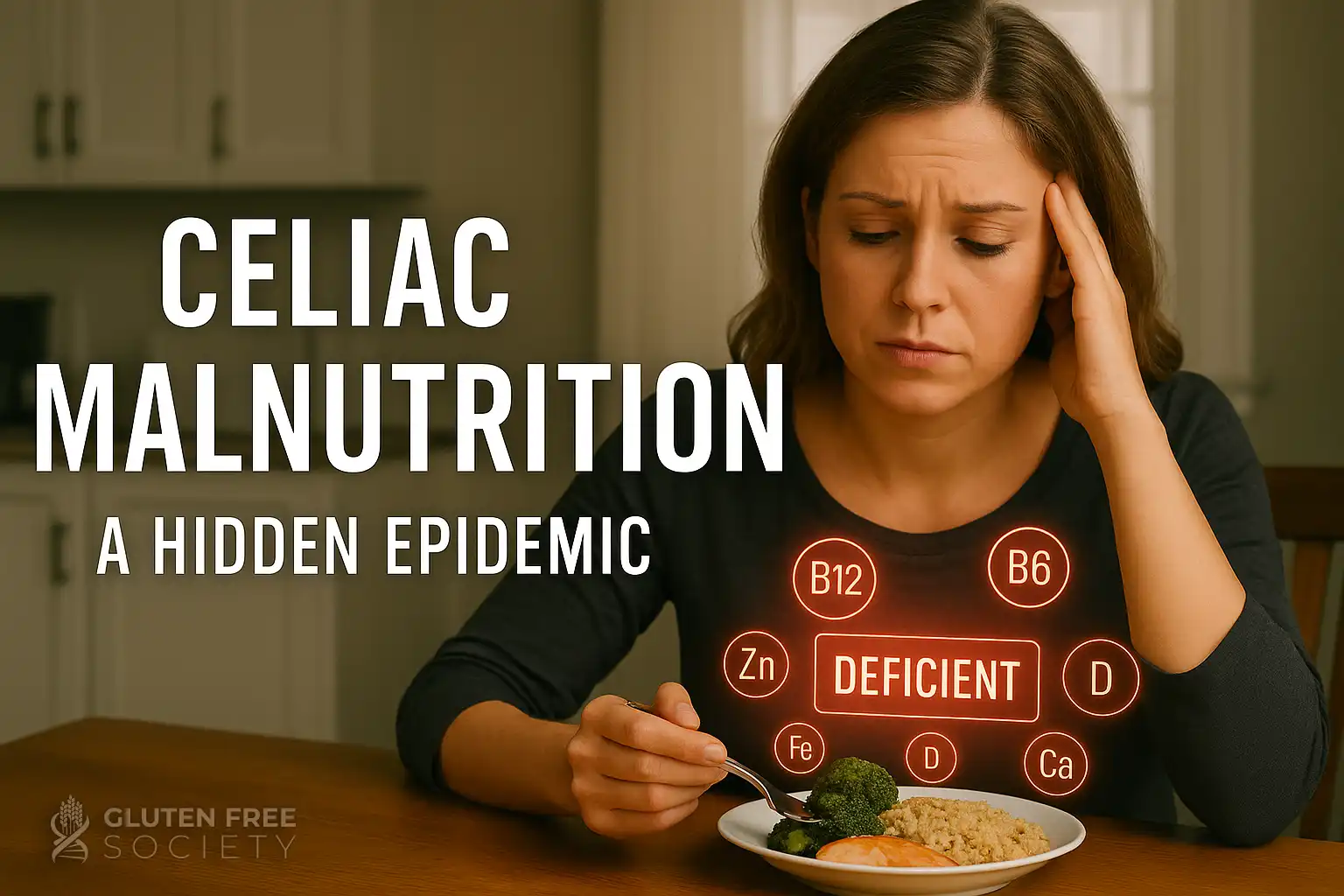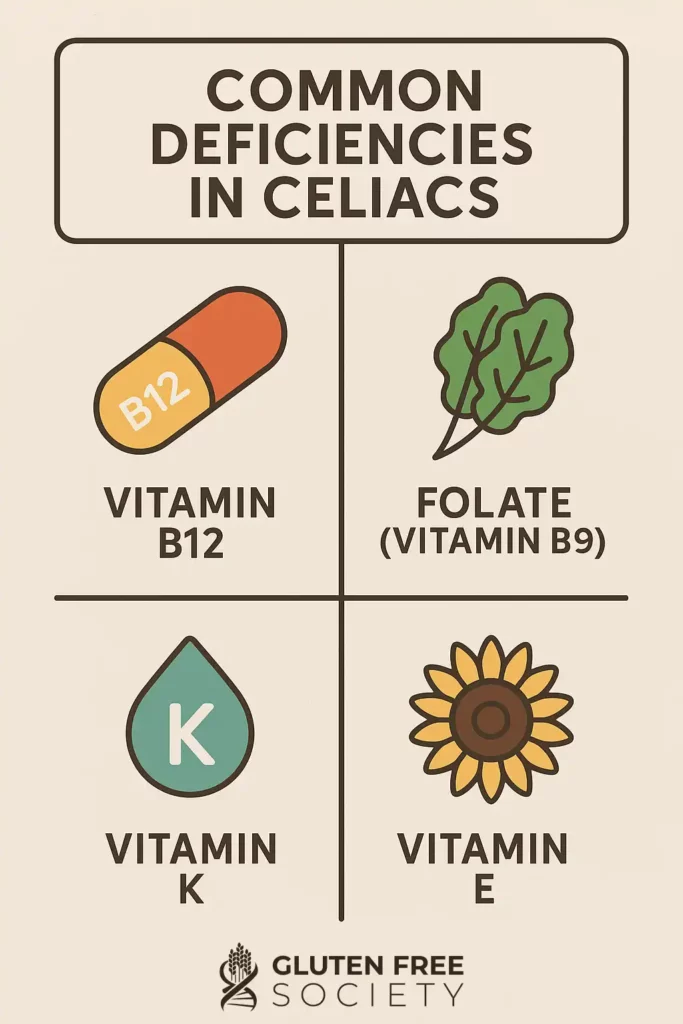new to the gluten free journey?
new to the gluten free journey?

Contents
ToggleIf you’ve been diagnosed with celiac disease or are gluten sensitive and following a gluten-free diet, you might believe you’re doing everything right. You’re reading labels. You’re avoiding wheat, barley, and rye. You feel somewhat better, but something still isn’t right – Celiac Malnutrition.
Fatigue lingers. Your hair thins. Your memory slips. Your labs might even look “normal,” but you don’t feel normal. And here’s the truth your doctor probably never told you:
– A gluten-free diet alone does not guarantee nutritional recovery. –
In fact, research published in the medical journal, Metabolites, confirms what I’ve seen in my clinic for years… vitamin and nutrient deficiencies are shockingly common in people with celiac disease, even when they follow a strict gluten-free diet.
The review, aptly titled “Vitamins and Celiac Disease: Beyond Vitamin D”, looked at years of nutritional data in celiac patients. The findings? Most patients, even those on a gluten-free diet, continue to show deficiencies in B12, folate, vitamin K, and vitamin E. Here’s a breakdown in plain English:

Although a gluten free diet often comes with a healthy connotation, much of the gluten free food market is ultra processed junk food. Most people following a GFD rely heavily on gluten-free breads, pastas, and cereals that are:
This means that, even when avoiding gluten, your diet may be setting you up for long-term nutritional failure.
With decades of experience specializing in gluten-related illness, here’s what I advise every patient:
Not all supplements are created equal. Avoid those containing corn, rice, or soy derivatives. Look for certified grain-free vitamins formulated for sensitive patients (available through GlutenFreeSociety.org).
The goal isn’t just to be “gluten free.” The goal is to restore your health and thrive.
You deserve more than symptom relief, you deserve complete healing. That’s what drives me and our mission at Gluten Free Society. Whether you’re just starting out or have been gluten-free for years, now’s the time to take your nutritional health seriously.
Next Steps:
Always looking out for you,
Dr. Osborne – The Gluten Free Warrior
Written and medically reviewed by Dr. Peter Osborne. Updated on May 9, 2025